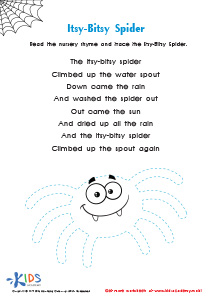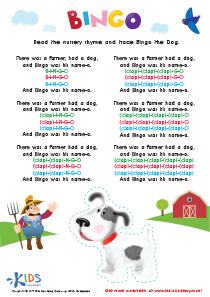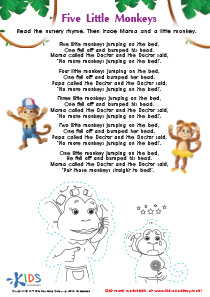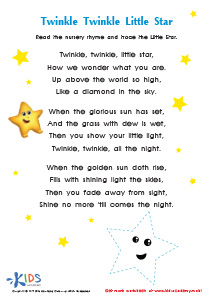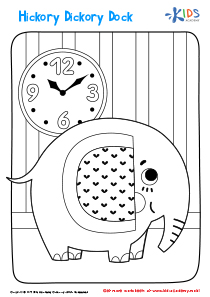Easy Nursery Rhymes Worksheets for Ages 3-8
4 filtered results
-
From - To
Discover a delightful collection of Easy Nursery Rhymes Worksheets designed specifically for children ages 3-8! These engaging worksheets introduce young learners to classic nursery rhymes, enhancing their literacy skills through fun and interactive activities. Each worksheet features vibrant illustrations and age-appropriate exercises that promote vocabulary development, reading comprehension, and creativity. Ideal for parents, teachers, and homeschooling, our resources make learning enjoyable while reinforcing memory skills and phonetic awareness. Explore our selection to spark your child's imagination and foster a love for reading through beloved rhymes. Download a worksheet today and watch your child thrive in a joyful learning environment!
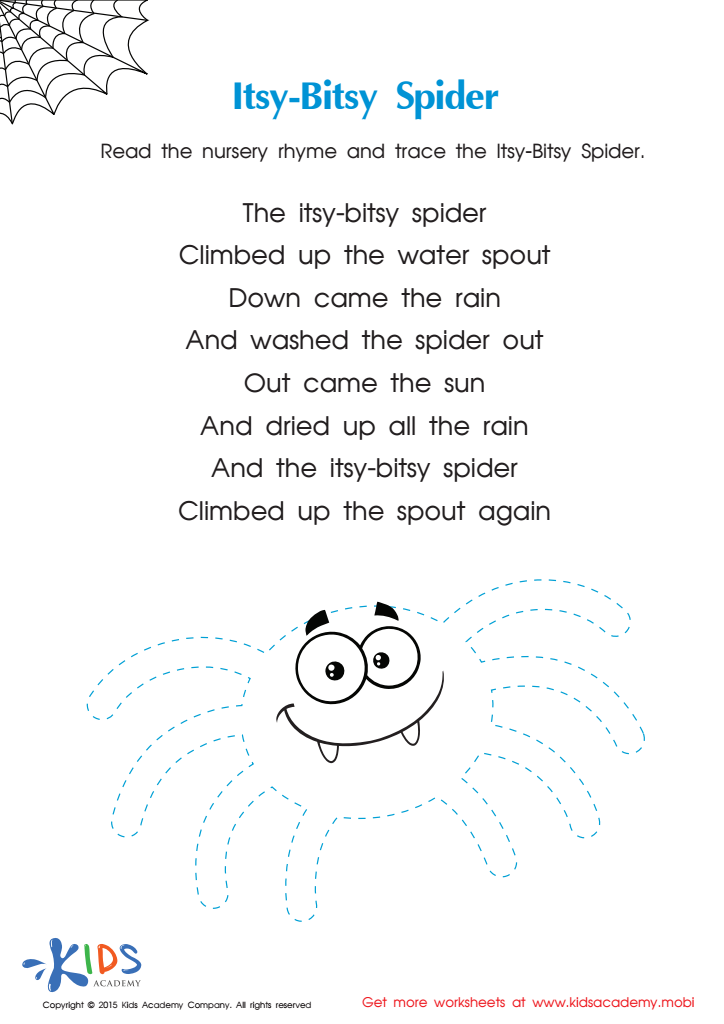

Itsy Bitsy Spider Nursery Rhyme PDF Worksheet


The Five Little Monkeys Nursery Rhyme Worksheet
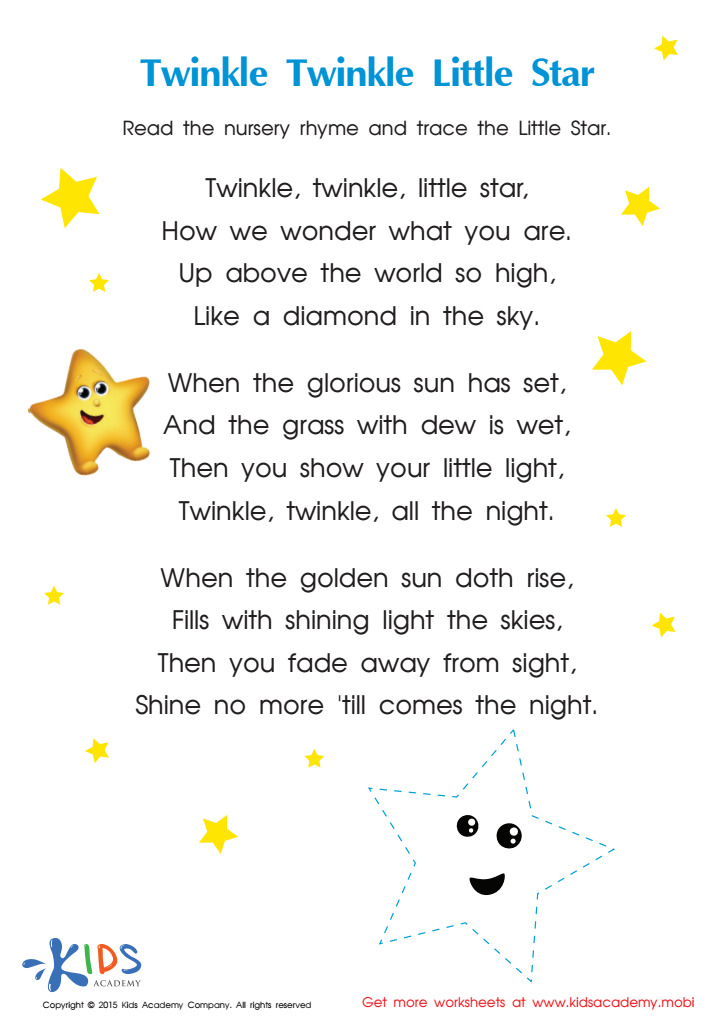

Nursery Rhymes: Twinkle Little Star Worksheet
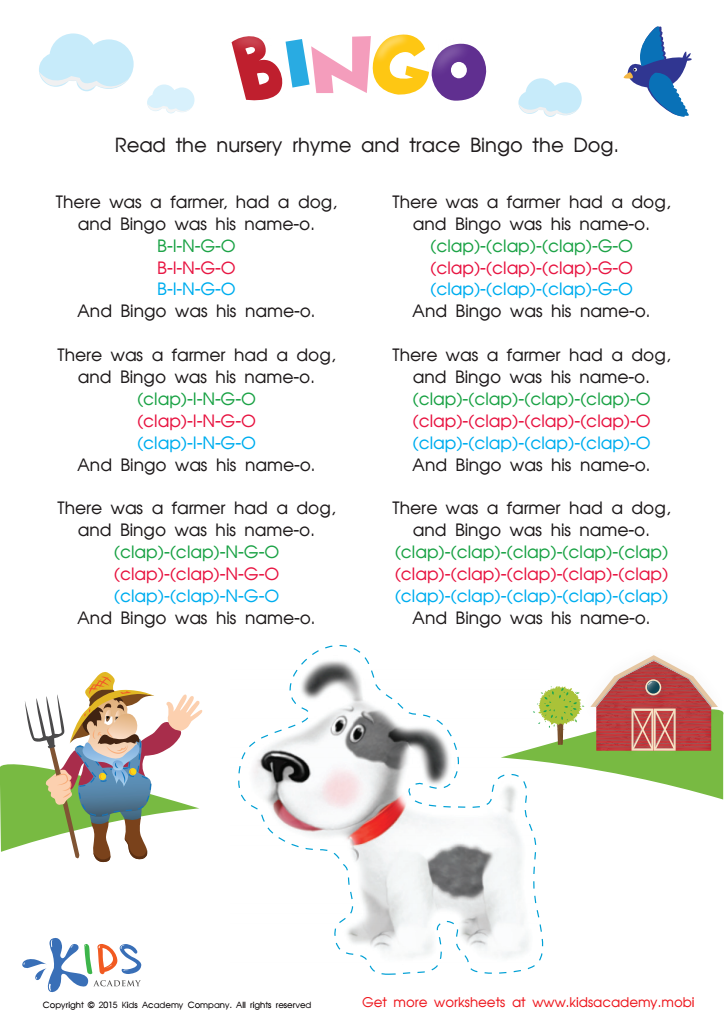

Nursery Rhymes: The Bingo Song Worksheet
Easy nursery rhymes play a crucial role in the early development of children aged 3-8, making them a valuable tool for parents and teachers. First, these rhymes stimulate language development by introducing young learners to new vocabulary, sounds, and rhythmic patterns, enhancing their phonemic awareness. This foundation is essential for successful reading and writing skills later on.
Additionally, nursery rhymes aid in memory retention and cognitive skills. The catchy melodies and repetitive structures help children memorize phrases and words, fostering their ability to recall information. Furthermore, these memorable tunes promote auditory discrimination and encourage participation, making learning fun and engaging.
Socially and emotionally, sharing nursery rhymes strengthens the bond between adults and children. The joy of singing together can create positive shared experiences, promoting a sense of security and trust. Moreover, many rhymes convey moral lessons, helping children develop empathy and understand cultural values.
Ultimately, incorporating easy nursery rhymes into daily routines enriches a child's learning experience, supports linguistic and cognitive development, and fosters meaningful connections between caregivers and children. For these reasons, parents and teachers should prioritize nursery rhymes as an essential aspect of early childhood education.
 Assign to My Students
Assign to My Students










.jpg)
